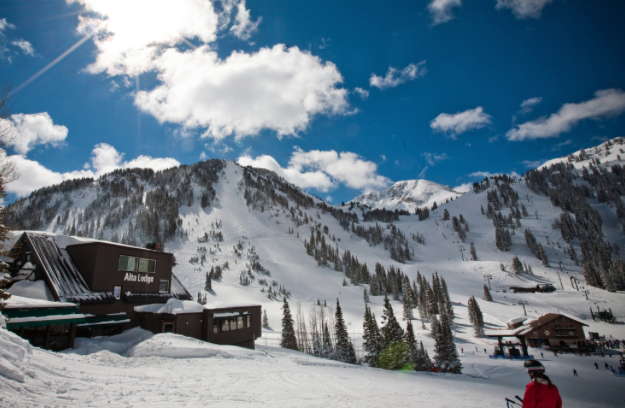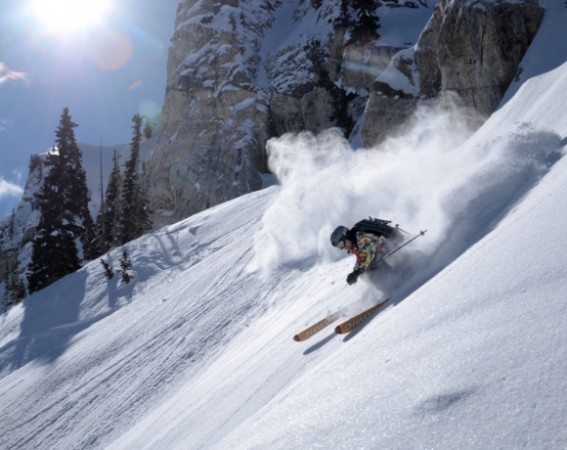
Really? Is this still a thing? Banning snowboarders from ski resorts? Sounds like somebody forgot to check what’s trending on Facebook.
Yesterday, in unsurprisingly snoozy news, a federal appeals court ruled that Alta Resort in Little Cottonwood Canyon outside Salt Lake City can still essentially tell snowboarders to go f$%&* themselves, upholding a lower court’s ruling that yes, Alta can stubbornly hold onto its ban on that type of snow gliding like the Charles Dickens’ Scrooge character if it wants to.
But here’s the only relevant question (cause it’s hard to find anything remotely resembling relevancy these days when it comes to Alta): What does this accomplish? Hasn’t the whole skier vs snowboarder thing faded out? Kind of like neon and skinny skis and furs that made snowboarders want to be snowboarders in the first place? Admittedly, as a media person, the awkward grittiness and story telling ops of a conflict sound pretty fun.
But like pagers, the whole thing stopped blowing up long ago. There’s just no heat.
I guess at this point, for Alta heads to stubbornly stay this old school on something like this, it’d have to be about branding (cause it sure as hell ain’t about money as the resort doesn’t seem to be worried about the bucket loads it’s missed out on over the years). They’ve tagged themselves as a resort “for skiers.” So rad: If you’re a complete geezer. In case you just crawled out of Grizzly Gulch on your way back across the highway to the lift, the two sports are as closely related as they’ve ever been.
It’s almost become two ways to ride the same surface. Like a longboard and a shortboard, hard tail or dual suspension. What are the conditions of that surface? Ride the correct equipment for the situation. And that is all.
Snowsports’ biggest events have melded into one: from X Games to Dew to NineKnights—for cost, promotion and other factors, they share halfpipe and big air venues with snowboard and ski athletes. The Freeride World Tour, which promotes big mountain events, hosts both and its athletes can do both. Reportedly, its female snowboarding world champion, Estelle Balet, who tragically perished this week in an avalanche, was as equally gifted on skis.
So I guess Alta will continue to slowly drown in its own irrelevancy, joining Deer Valley and Vermont’s Mad River Glenn in the same fate. I’ve skied Alta at least twice and believe me, it’s totally neato. Here’s the clichéd version: it boasts big lines and amazing snow. And the snow is more a testament to Utah and its geological placement. But…yawn…it’s a resort. A lot like other “awesome resorts” across North America.

Good on snowboarder Bjorn Leines and Wasatch Equality for fighting the ban in court (the group first filed the unlawful discrimination suit against Alta and the US Forest Service in January of 2014 claiming the resort violated the Constitution’s Equal Protection Clause because it operated on public land). It isn’t nearly as severe, so not to give this ridiculous issue as much credence, but you wouldn’t tell a gay person they couldn’t ride Snowbird? Or a black person they couldn’t shred Solitude? It’s fairly cut and dry. But the court ruled that Alta was in legal space because the Forest Service didn’t influence the decision, therefore it wasn’t blanket “state action” resulting in discrimination.
If it’s any consolation snowboarders, Alta would probably be lame to ride anyway. You’d always be on your edge. To access much of the mountain, there’s enough traversing to have you pining for an upper thigh massage after the first three runs.
So let ‘em be old and out of touch. Disconnected and unconcerned. It’s the way it should be. Because if you take even a brief look at history, that’s the usual tone powerful people and institutions adopt just before they become completely irrelevant.

